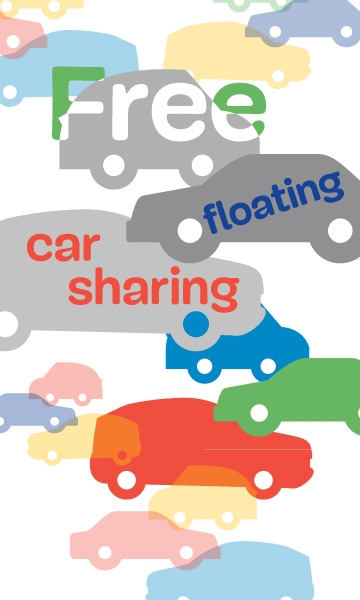By introducing free-floating car sharing, the Brussels-Capital Region has positioned itself at the cutting edge of smart mobility. This formula enables users to borrow a shared vehicle without having to return it to its point of departure.
Smart cities need smart mobility, i.e. to offer urban dwellers new solutions that make it easier for them to travel within the city. These include car sharing, the purpose of which can be summarised as “fewer cars mean better cars”. Free-floating car sharing is entirely consistent with this project, a new concept which has now been added to other car-sharing systems. What makes the difference is a single word: flexibility.
A new step forward for smart mobility
One little-known fact is that private vehicles are used only 5% of the time, so that for 95% of the 24 hours in a day they remain where they have been parked by their owners. Car ownership can lay a heavy financial burden on city dwellers and also take up more public space than is available. Free-floating car sharing is a particularly effective way of reversing this trend.
On average, a fully free-floating car replaces 8 private vehicles, as demonstrated by the results of existing free-floating car formulas, which have already been successfully applied by a number of smart cities: Amsterdam, Milan and Munich and, on the other side of the Atlantic, among others, San Francisco.
In practice: free movement and easy parking
Users of free-floating shared vehicles have great freedom of movement, as they can travel from Point A to Point B without having to return the car to Point A. In the Brussels-Capital Region, the system is enhanced by the fact that waiver cards enable users to park anywhere within the Region.
?The free-floating system in the Brussels-Capital Region involves the use of a formula available from various approved operators in the Region. The latter need to comply with a variety of requirements:
- in practical terms : booking and use of the service, as well as a helpline, must be available 24/7;
- in terms of smart mobility : cooperation is required with public-transport operator STIB/MIVB (trams, buses and metro) as well as with public car-park operators in at least 3 different municipalities;
- in environmental terms: free-floating vehicles must have a minimum ecoscore of 64 to 72, depending on the vehicle category.
